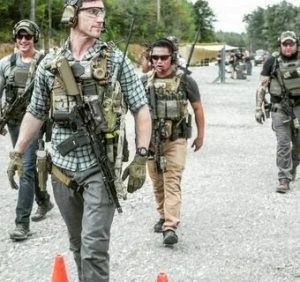In an unpredictable world, being prepared for unforeseen challenges is paramount. Civilian tactical training emerges as a crucial aspect of personal empowerment and safety. Understanding the significance of honing tactical skills becomes essential as we navigate an era of uncertainties. This blog aims to delve into tactical training, exploring its importance, key components, and the transformative impact it can have on individuals’ lives.
The Civilian Tactical Training
Civilian Strategic Training refers to the systematic education and practice of skills that empower individuals to navigate and respond effectively to potential threats in their surroundings. Unlike military or law enforcement training, civilian-planned training is tailored for ordinary individuals who seek to improve their safety and those around them. Developing a mindset that prioritizes situational awareness, critical thinking, and practical skills is the goal, applicable in real-world scenarios.
Mindset Shift as the Foundation of Civilian Tactical Training
One of the foundational elements of citizen tactical training is the development of mental resilience. Secondly, in high-stress situations, remaining calm and thinking rationally is paramount. Training programs often simulate realistic scenarios, challenging participants to make quick decisions under pressure. This mental conditioning boosts the individual’s ability to respond effectively and builds confidence and self-assurance.
By emphasizing the importance of situational awareness, civilian proactive training teaches individuals to assess their surroundings. Additionally, identify potential threats, and develop proactive strategies for avoiding or mitigating risks. This heightened awareness goes beyond physical confrontations, extending to everyday situations where being alert can make a significant difference.
Mastering Skill by Navigating Real-World Scenarios
Civilian tactical training goes beyond theoretical knowledge, emphasizing the acquisition of practical skills. Trainers equip participants with skills in various disciplines, including hand-to-hand combat, firearm use, and basic medical procedures. While the goal is not to turn civilians into combat experts, having a fundamental understanding of these skills can be invaluable in emergencies.
Firearm training, for example, includes proper handling, marksmanship, and responsible gun ownership. Participants learn when and how to use firearms as a last resort for self-defense, ensuring that they can protect themselves and others while minimizing risks. Medical training, on the other hand, covers basic first aid, CPR, and emergency response. Thus, empowering individuals to provide immediate assistance until professional help arrives.
Situational Awareness – The Key to Personal Safety
Situational awareness is a cornerstone of effective citizen strategic training. Secondly, being attuned to one’s environment, identifying potential risks, and understanding how to navigate them are all involved. Training programs often incorporate exercises that improve observational skills. Further, teaching participants to assess their surroundings and make informed decisions based on available information. Maintaining heightened situational awareness is invaluable in an era where threats can arise suddenly and unexpectedly.
The Transformative Impact of Civilian Training
Participating in civilian training can profoundly impact individuals, transcending the development of practical skills. It instills confidence and empowerment, knowing one possesses the knowledge and capabilities to handle challenging situations. Moreover, it fosters a sense of community as participants often train together. Hence, creating a network of individuals committed to personal safety and the well-being of others.
Conclusion
In conclusion, Civilian Tactical Training is vital to personal safety and empowerment. By fostering a tactical mindset, mastering essential skills, and prioritizing situational awareness, individuals can confidently navigate the complexities of our unpredictable world. Recognizing the importance of preparing for the unexpected, embracing civilian-planned training becomes a positive step toward personal resilience. In a society where uncertainties persist, the transformative impact of this training extends beyond individual preparedness. Thus, creating a community of individuals committed to ensuring the safety and well-being of themselves and those around them. If you wish to learn the techniques to keep yourself safe, join us or contact us for more information.












